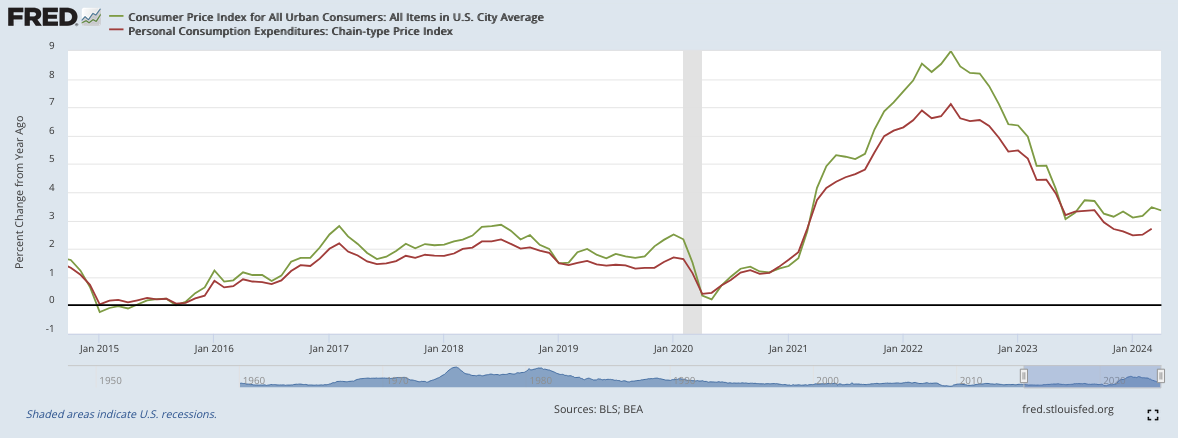May 22, 2024

Inspired by a recent article written by a Nobel prize (Paul Krugman) with his "Opinion" 's newsletter on the NY Times, I am here to share a couple of key points on what inflation is, and why it matters for markets (and which are some key misconceptions).
No, I promise this post is NOT going to be the usual download of basic, irrelevant information on inflation that you will find elsewhere.
- - -
What is inflation
Inflation is a general increase in prices. If the price of the same good goes up, you need more money to buy exactly the same good.
Paraphrasing with a joke:

No one likes prices to go up. But there are many reasons why it happens.
Either demand for the same good or service goes up or the available supply goes down, in both cases causing prices of such good/service to go up. More insights on inflation sources here.
Inflation affects financial markets
Now, why does inflation bother investors and financial markets?
On a fundamental basis, higher prices without adjusting salaries will make people buy less. With people buying less, corporate earnings will fall. With earnings falling, stocks might go down - same things equal.
Also, higher inflation will push central banks to hike interest rates (to invite people to save instead of spending, a way to stop price increases working on the demand side), which will cause bond prices to go down.
Rising/higher inflation (pushed by supply-side scarcity during Covid) has hammered markets in 2022, as you might remember.
We can see below US inflation (as proxy for global forces) in purple rising in 2022 and staying higher than desired (2% level, indicated by a green line) in 2023 and 2024. In the lower chart we can see the yield of a 10yr US government bond rising on the back of rising and higher inflation (remember that this means that the bond prices have kept falling).

Looking at the stock market, we can see the negative impact of the inflation scare on the US equity market (via the S&P 500 - on a different timescale below):

Inflation and markets right now
With the understanding of some basic dynamics out of the way, we can now discuss about what is going on RIGHT NOW and how to interpret the future.
US inflation continues to be higher than desired (above 3% vs a target of 2%), spiking up in May unexpectedly to 3.5% (with unhappy market reactions) and fading down to 3.4% as of end-April (the latest figure available) - as shown by the green line below.
Krugman states that PCE (red line below - here's more on PCE vs CPI), the preferred measure of inflation by the US central bank, is showing a more benign trend (even in light of the most recent temporary rise). Financial markets also seem to believe that the recent upticks in early 2024 should be considered statistical noise (we shall see).

The message here is that US inflation is on the way down from its peak, which is undeniable.
What are the implications for our investments?
Fading inflation should made fixed income bonds interesting again (now paying higher yields and being cheap at low prices). In parallel, we have learnt that stock markets can work well with both lower or higher inflation (see the S&P 500 now at its historical max levels) assuming that much higher inflation will NOT suddenly pop-up as a major unexpected surprise.
The inflation topic should be settled here. Easy peasy.
Still, the other day I received a comment via Linkedin that made me think about what people believe inflation is.

To give you more context:
Then I got the answer above that made me think people often mix up price levels and their rate of change - with some just willing to NOT believe official data (everything is fake news) - which is why I had the idea to create this post.
Krugman explains some inflation misconceptions very well. Let me paraphrase his explanations:
#1 People confound the level of prices with inflation, which is instead the rate of change in prices

#2 Inflation measures do not reflect the true cost of living

I hope this clarifies what inflation is and what is not, why markets are affected by changes in prices and what is the inflation outlook in the near term.
Thanks!
Feel free to share any comment with us: hello@pantar.ai